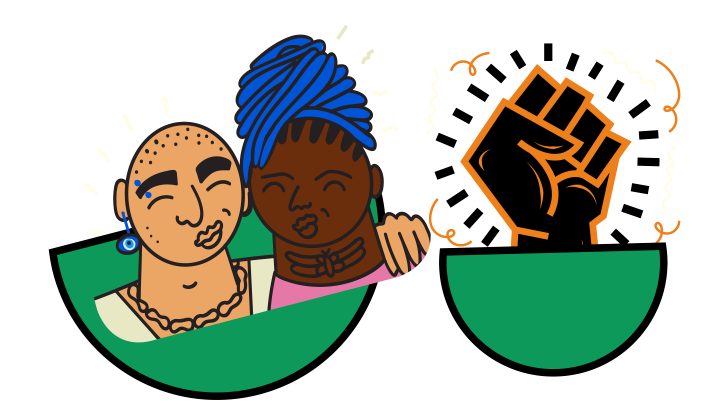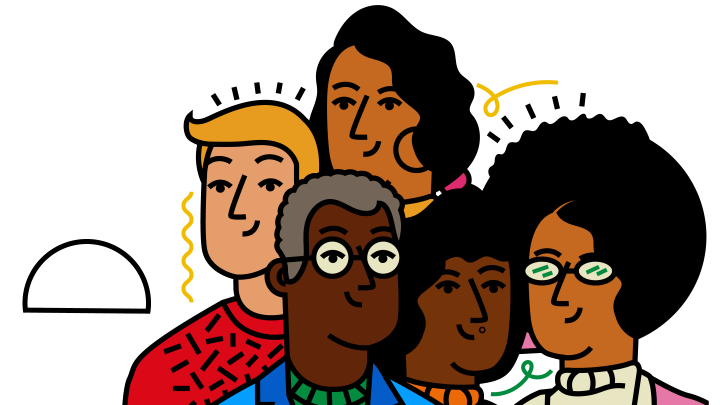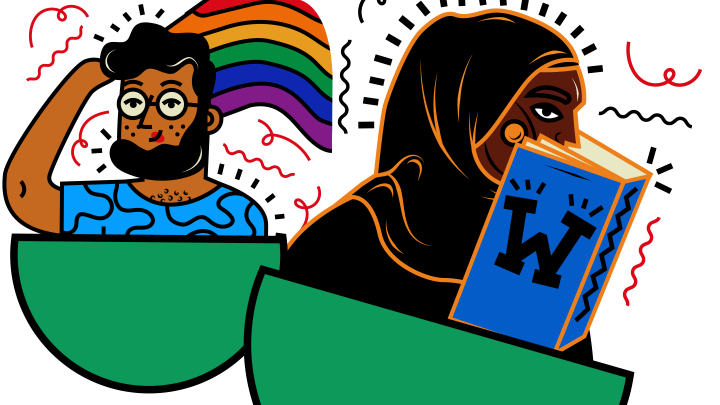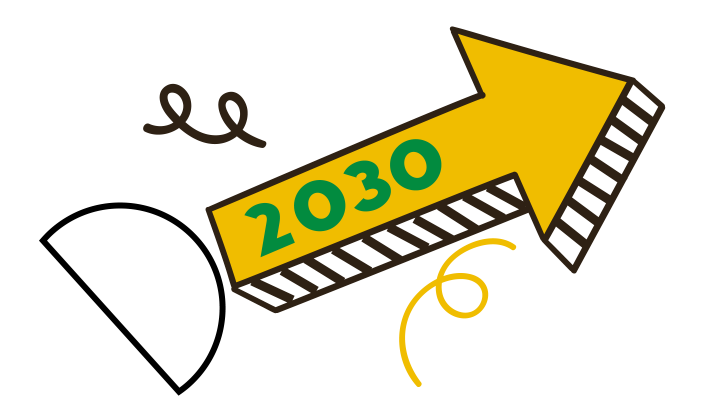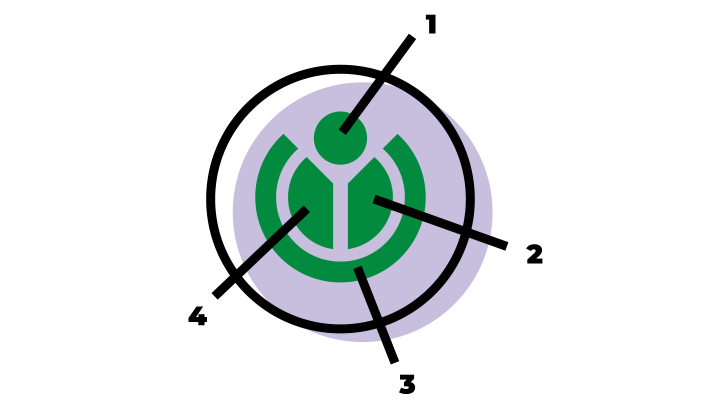20 years of Wikipedia
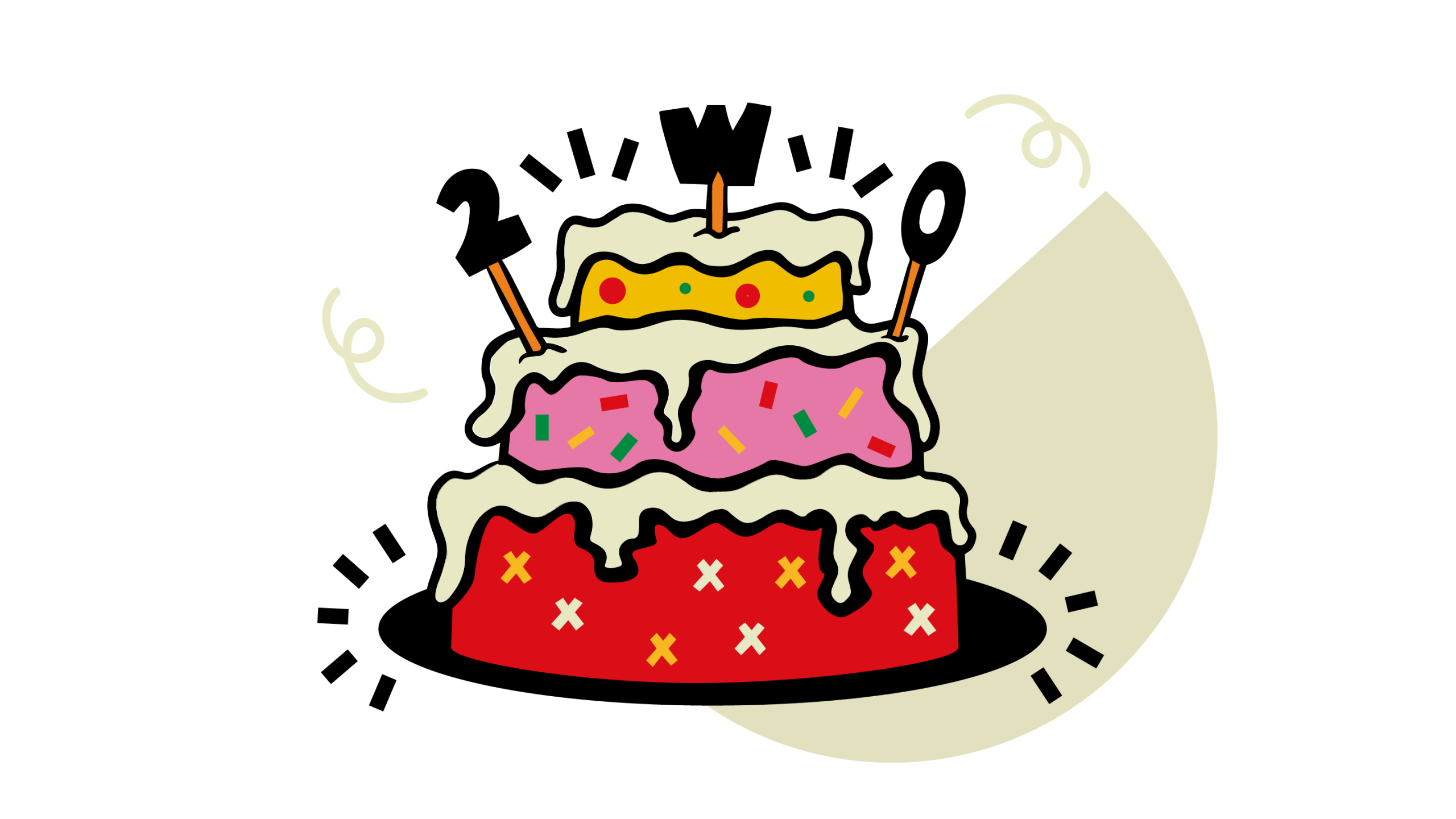
When the largest collaborative project on the planet has its birthday, it’s time to celebrate! On the occasion of Wikipedia’s 20th anniversary, prominent minds congratulated, documentaries were made – and behind the scenes of the knowledge collection and its community, a digital exhibition uncovered things that were remarkable, curious, and much more. And there were also still new things to learn about Wikipedia itself.
Is Wikipedia’s grammatical gender masculine, feminine or neutral? Initially, there was some disagreement on this issue when the German-language edition of the free online encyclopedia was launched on March 16, 2001. “Most German nouns ending in -a are feminine, yet ‘die deutsche Wikipedia’ is silly,” one user commented at the time.
Twenty years later, that case has been settled – and the story is among the treasure troves of anecdotes that Anika Reineke, Damaris Schmitz and Elisabeth Friedrich have collected for the online exhibition “Together for Free Knowledge.” The anniversary exhibition, created in cooperation with the German Digital Library, takes us deep into the Wikiverse to mark the birthday of the world’s largest knowledge collection – not least with the aim of “celebrating the community, the volunteers who invest so much time, lifeblood and commitment in this project,” says Reineke.
Contagious enthusiasm
Wikipedians from Germany, Austria and Switzerland were called upon to send in special memories; digital copies that, in their eyes, tell the story of what it means to work together on the ideal of Free Knowledge. The three curators have structured the exhibition according to the Wikipedia principle: Terms are linked, one contribution builds bridges to the next. It tells the story of the beginnings of Free Knowledge. “As early as in a print of the Diamond Sutra from the year 868, the note ‘For universal distribution’ can be found,” says art historian Reineke, who works at the National Museums in Berlin and has been a Wikipedian since 2003.
We learn about the founding of the collaborative writing project “Women in Red”, the Wikiquette with 10 rules of etiquette, being on the move with the Wikitrain, the #wikifueralle campaign – or even the WikiProject “Traditional Crafts” (and what the “Trattenbacher Taschenfeitel” is all about as part of Austria’s intangible cultural heritage). Community members report on the discovery of a remote British military cemetery in Egypt, the last meeting with a 91-year-old Cologne graphic artist (inventor of the character “Oskar, the friendly policeman”),or we learn about the laborious search for photographic material for a text about a former governor in Timor.
Curator Damaris Schmitz – who, like Elisabeth Friedrich, works for the agency Artefakt Kulturkonzepte – sums it up like this: “I was thrilled by the enthusiasm of the volunteers.”
More than just an encyclopedia
“Today, state archives and libraries work with you; you are a ray of hope on the Internet in times of disinformation and alternative truths.” With this praise, Germany’s Federal President Frank-Walter Steinmeier paid tribute to Wikipedia – as one of many prominent figures from politics, science and culture who offered their congratulations via video message.
“My Brockhaus still sits on the shelf, but I use it less and less often – because it’s just great that your encyclopedia can be accessed at the touch of a button,” said actress and director Katharina Thalbach.
“You’re much more than just an encyclopedia – anyone can join you if they take the time,” said author Jean Pütz.
“Imagine a world in which every single person on the planet is given free access to the sum of all human knowledge” – with this sentence, Wikipedia co-founder Jimmy Wales outlines his original vision for the project, which is still valid. The quote is also at the beginning of the documentary “The Wikipedia Promise – 20 Years of Knowledge for All?”, which Lorenza Castella and Jascha Hannover produced for the German TV network WDR in collaboration with arte to mark the anniversary.
The film is a critical appraisal of Wikipedia’s history. Not only does it look back on the beginnings (the “Nupedia”, which failed in the end) and at success stories (between 30 and 40 million hits a day on the German Wikipedia alone). The documentary also sheds light on controversies such as edit wars, the gender gap in the communities, and the question of whether oral history can be depicted.
The Wikipedia asteroid
If, on the other hand, you want to navigate through the history of Wikipedia and its sister projects yourself, you can go on a “virtual time travel” online – and discover milestones from 20 years,for example: January 15, 2003 (“On its second birthday, the entire Wikipedia comprises 130,000 articles in 28 languages, making it the largest wiki in the world”). December 5, 2008 (“The German Federal Archive hands over 100,000 images to Wikimedia Commons under a free license”). January 27, 2013 (“An asteroid is named after Wikipedia”). Or January 27, 2020 (“A Wikipedian receives the Federal Cross of Merit for the first time”).
Anika Reineke emphasizes that the title of the birthday exhibition contains the essence of the entire project: “Together for Free Knowledge.” “That’s what it’s all about: working together towards this great ideal.”

